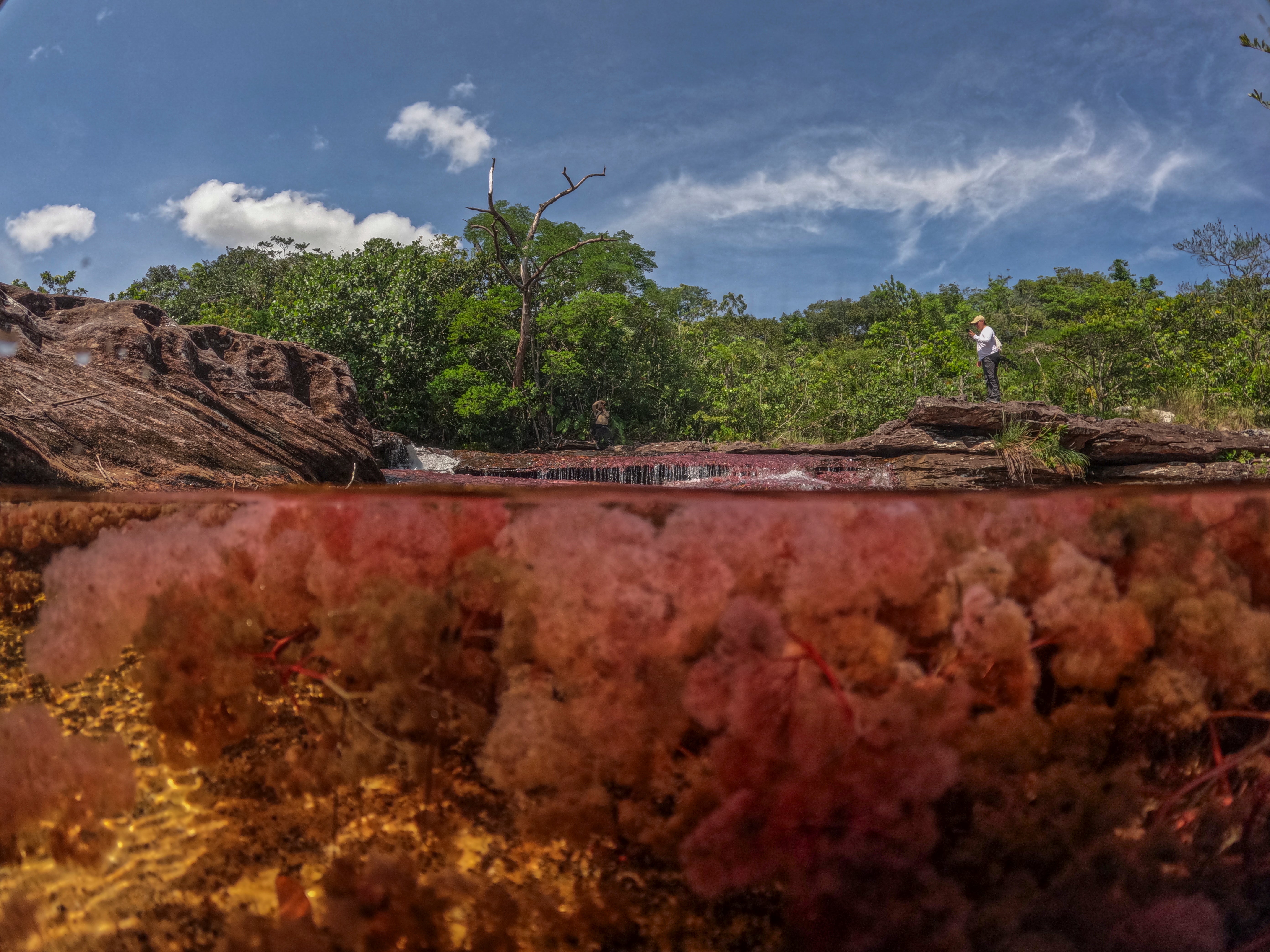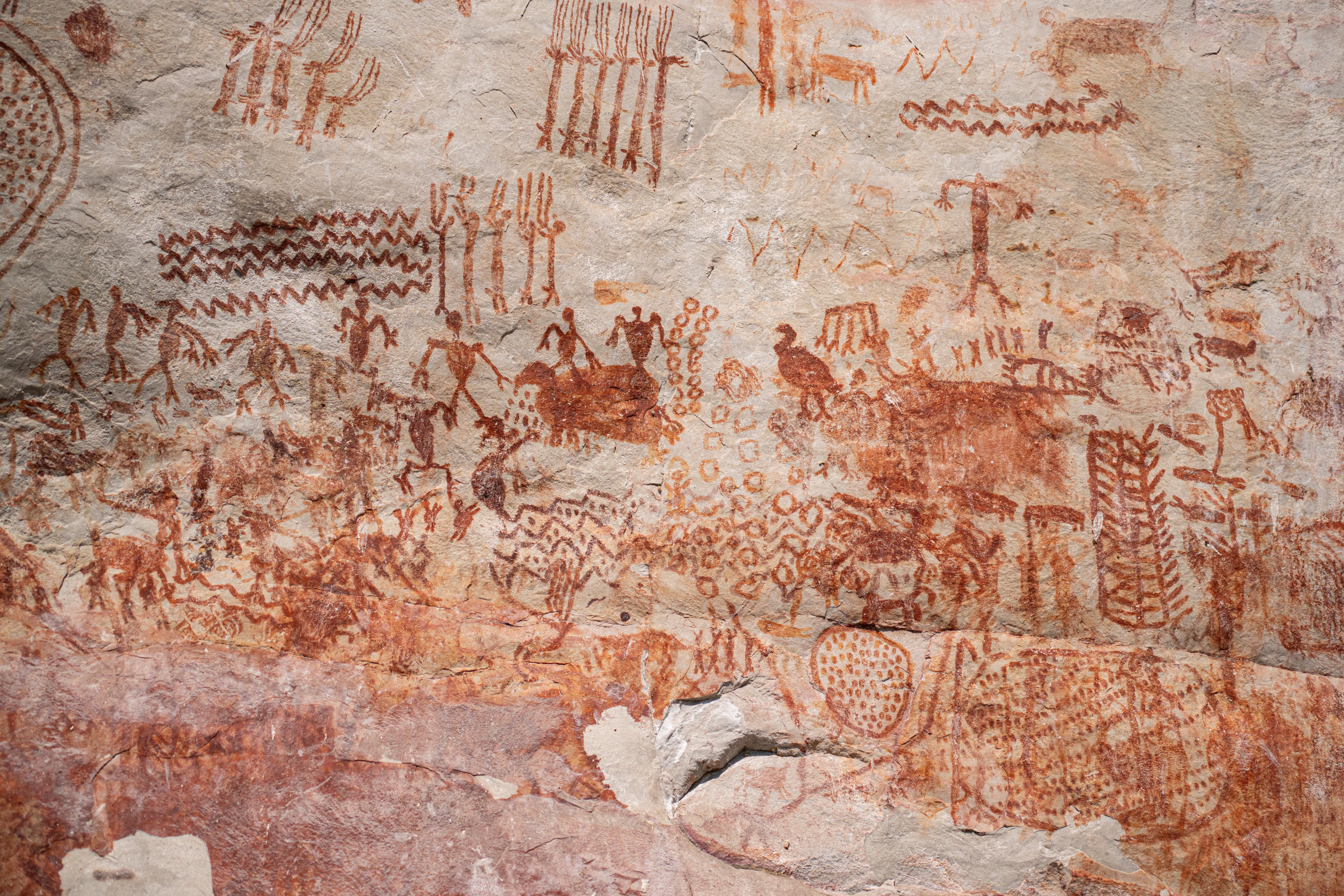My journey to the Amazon confirmed we have every reason to worry
Rishi Sunak’s environmental rollbacks are unacceptable. I have a responsibility to use my voice to call him out, Ellie Goulding writes


Your support helps us to tell the story
From reproductive rights to climate change to Big Tech, The Independent is on the ground when the story is developing. Whether it's investigating the financials of Elon Musk's pro-Trump PAC or producing our latest documentary, 'The A Word', which shines a light on the American women fighting for reproductive rights, we know how important it is to parse out the facts from the messaging.
At such a critical moment in US history, we need reporters on the ground. Your donation allows us to keep sending journalists to speak to both sides of the story.
The Independent is trusted by Americans across the entire political spectrum. And unlike many other quality news outlets, we choose not to lock Americans out of our reporting and analysis with paywalls. We believe quality journalism should be available to everyone, paid for by those who can afford it.
Your support makes all the difference.As I watched a florescent green caterpillar shuffle across the soft forest floor of the Colombian Amazon, it struck me that I'd never been quite so immersed in nature, or so aware of the strikingly obvious way the eco-system works together as one interconnected force, each plant, animal and organism playing a codependent role.
Growing up, I was much more aware and observant of the outside world than my siblings. This probably came from me being both a naturally very anxious child, and a very curious one. I'm still a hugely anxious adult. As a kid I once read there was a chance the planet could collide with a meteorite, so every night I stayed awake thinking it would happen. I was a ferocious reader so took everything in, but a tense upbringing meant it wasn't always fun to be at home.
My solution was to take myself off and go for long, steady walks. Nature comforted me and was something I could rely on and immerse myself in. I got to know every single hedgerow, tree and field around me. Nature contained me and became my anchor while the rest of my life was rocky. As such, my passion for the natural world and desire to protect it was a huge part of me from an early age. It's devastating to think that on our current trajectory, this natural solace won't be available for the next generation.
I recently visited the Colombian Amazon with the conservation charity WWF to draw attention to the crisis facing forests across our planet. These incredible green giants that breath air into our world tell a story of mounting pressure and of juxtaposition. An uncomfortable disconnect sits between an international commitment to save and restores them, and the reality I'm witnessing today of accelerated forest loss, continuing degradation, and a decline in their wildlife.
In fact, since the back slapping promises made at the Glasgow COP two years ago, we've lost an area of tropical rainforest twice the size of Wales.
When you see the sheer scale of the rainforest, you begin to understand why it controls so much of our global climate, rainfall and is home to 80 per cent of species that live on land. As Luz Angela, our WWF Amazon specialist, explained to us as we climbed uphill, weaving in and out of mahogany, myrtle and rubber trees, restoring forests and tackling the climate crisis go hand in hand.
In short, we can't survive unless we protect and restore our forests. If we fail to reduce emissions, with rainfall and temperatures remaining unpredictable, then we could lose a further 500 million hectares of forest by 2100, hurtling us towards a tipping point that will leave our climate and nature targets completely out of reach and our future questionable.

I travelled to the remote Guaviare Department and met some incredible people from local and Indigenous communities. Slowly, I learned just how complex this vibrant, colourful country is, with a history seeped in conflict that tragically goes hand in hand with environmental destruction. It was here where, before the 2016 peace process, kidnappings, slashing forests and burning of cocaine plantations were the norm thanks to the Guerilla groups that controlled the area.
I met one farmer, Noe, who told me that pre-2016, he was under pressure from the FARC military group to destroy one hectare of rainforest per week and replace it with coca plants.
Now, thanks to support from WWF, native trees once again fill the vast expanse the coca plantations occupied and the area has become a tourist destination. This is one of the success stories, but the peace process here is on a knife edge as breakaway militia groups repopulate the area, destroying forest to make way again for cattle ranching and coca.
The people I met care innately about the destruction of the forest, more so, it feels, than people in the UK engage with nature on their doorstep. It's their home, their livelihood, a sacred place for their ancestry and so much more. I've learnt that where stewardship of forests is given to Indigenous Peoples and local communities, they are better protected and deforestation and degradation are lower. This applies not just in Colombia, but across the tropics. It's critical these rights are protected and upheld, not handed over to legislative powers.

It's becoming increasingly obvious that the climate is not a priority for British Prime Minister Rishi Sunak and I have a responsibility to use my voice to call him out and say: these environmental rollbacks are unacceptable.
Our leaders repeatedly tell us that people and their long-term security are their priority - but the battle to restore our natural world and stabilise our climate is our future security. To continually pass legislation at odds with protecting our planet goes against all common sense and sends an insidious message that as a nation, we don't need to engage, that there's nothing to worry about. This terrifies me because having seen the growing threats and destruction first-hand, and how with the right commitment we could save our planet, I can say with absolute certainty that we do have to worry.
On a less political level, I feel we've lost our connection to nature. When you don't care about something, there's no desire to protect it, and I think that's our problem in the UK; we've been incentivised to fall out of love with nature. Young people are certainly onto something though - but they're not being taken seriously. There's always been an attitude that young people are naive and impressionable, their beliefs misguided. But today, the youth have every reason to feel angry, frustrated and ignored. It's out of sheer desperation they're taking the measures they do. Why should it be down to them to write books on climate anxiety? To glue themselves to roads? To miss school? I've attended the last two COPs and have been shocked that young environmental activists are sidelined, quite literally. More often than not they're in the side room, not in the plenaries with the world leaders - it's getting better but in Glasgow, youth activists weren't given a seat at the table and this just feels wrong.

I've had some testing times in my life recently and still instinctively turn to the natural world for comfort. I try to walk or run outside every day, especially when I'm in a dark studio. I feel grateful every time this outside world exists and is there for me. I don't operate well when I'm angry. I feel the only way that I can move forward in my activism and my work is to try and be as positive as physically possible.
Politicians are making that as hard as they can for us, but you have to keep fighting the fight and believe we can win this. Because we have to - there isn't a plan(et) B. Things aren't happening quickly enough.
As amazing as Colombia was, I wished I didn't have to be there. I'd have loved to curl up with my son and take him to nursery. It was his first week there during my trip and I wasn't with him. I would have done anything to change that, but this fight is for him and his future, and it's vital that I'm an active participant. Until our leaders tackle the climate crisis with the urgency it requires, I have a responsibility.
We have a terrifyingly short window to reverse the damage we've caused to the environment before it's too late. We need to act like this is another pandemic that urgently needs a cure. Covid proved to us that solving a terrifying global crisis is possible, and we need to see the same commitment, focus and dedication for the planet.
Join our commenting forum
Join thought-provoking conversations, follow other Independent readers and see their replies
Comments